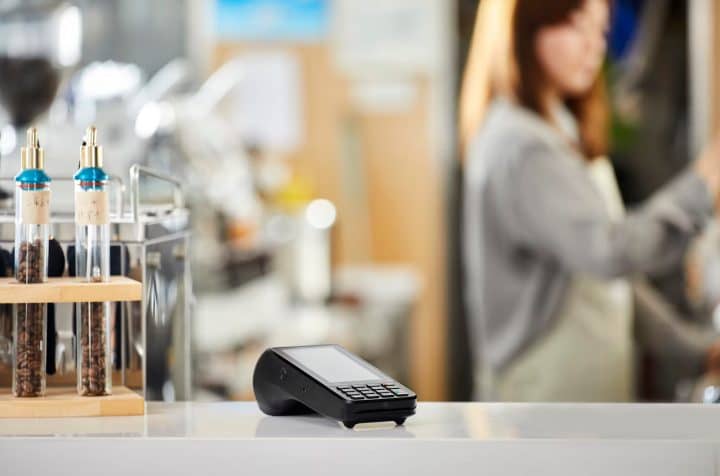As technology advances and consumer behavior changes, businesses must adapt to stay relevant. Point of sale (POS) systems have come a long way from the traditional cash register. Today, POS systems are essential for any business that wants to streamline operations and improve customer experience. With emerging trends and technologies on the horizon, the future of POS systems is exciting and full of potential. In this blog post, we’ll explore some of these innovative developments that will shape how businesses operate in the years to come. So buckle up and get ready for a glimpse into what’s next for POS systems!
Exploring the Evolution of Point of Sale (POS) Systems
Point of Sale (POS) systems have come a long way since their inception in the 1970s. Initially, they were simple cash registers that could only store sales data and process transactions. However, with advances in technology, POS systems have evolved to become sophisticated tools that enable businesses to manage inventory, track customer behavior, and analyze sales data.
One significant evolution of POS systems is the shift from traditional on-premise software installations to cloud-based solutions. Cloud-based POS enables businesses to access real-time sales reports remotely via any internet-connected device. This means business owners can monitor their operations even when they are away from their physical locations.
Another trend is integrated POS systems. This software for businesses combines the features of a traditional POS system with other business systems, such as accounting and marketing. Integrated POS systems provide a single platform for tracking sales, inventory, and customer data. This makes it easier for business owners to manage their operations and improve customer experience.
Cloud-Based POS Systems
Cloud-based systems are rapidly gaining popularity in the retail industry. These systems are hosted on remote servers and accessed through a web browser or mobile app, allowing retailers to process transactions from anywhere with an internet connection.
One of the biggest advantages of cloud-based POS systems is their scalability. Retailers can easily add or remove registers without having to purchase new hardware or software licenses.
Another advantage is that they offer real-time data syncing across all locations, making it easier for retailers to manage inventory levels and track sales trends across multiple stores.
Cloud-based systems also provide enhanced security features such as data encryption and regular system backups, ensuring that sensitive information is protected at all times.
Cloud-based POS systems offer flexibility, scalability, and increased functionality over traditional on-premise solutions. As more retailers turn towards e-commerce platforms, we can expect these types of solutions to become increasingly popular in the years ahead.
Mobile POS
Mobile systems are changing the game when it comes to purchasing and retail transactions. With mobile POS, merchants can bring their business with them anywhere they go. These systems allow for more flexibility in terms of where sales can take place, as well as how they are processed.
One major benefit of mobile POS is its ability to enhance customer service. Instead of having customers wait in line at a cash register, employees armed with mobile devices can approach them directly on the sales floor or even outside the store. This creates a more personalized shopping experience that ultimately leads to happier customers and increased loyalty.
Another advantage of using mobile POS is its cost-effectiveness compared to traditional point-of-sale setups. Without needing expensive equipment or software licenses, setting up a mobile system becomes much easier and less capital-intensive for small businesses.
Security concerns around mobile payments have largely been addressed through encryption methods like tokenization which makes sure sensitive data is safeguarded from cybercriminals who might intercept it during transmission.
There’s no denying that mobility has become an essential component for retailers looking to keep pace with evolving consumer expectations and technologies – making Mobile POS one technology trend worth watching closely in the coming years!

AI-Powered Analytics
AI-Powered Analytics is changing the way businesses operate, especially in the retail industry. This technology is helping retailers understand their customer’s behavior and preferences better than ever before. AI algorithms can analyze large amounts of data to identify patterns that humans might miss.
One application of them analytics is predicting customer demand. Retailers are using machine learning algorithms to forecast future sales based on historical data, weather forecasts, and other factors. By predicting demand accurately, retailers can optimize inventory levels and avoid stockouts.
Another use case for these systems analytics is personalization. By analyzing customer purchase history and browsing behavior, retailers can recommend products tailored to individual customers’ preferences. This not only improves the shopping experience but also increases sales.
AI-powered analytics also helps retailers with pricing strategies. Machine learning algorithms help determine optimal prices based on factors such as competition, seasonality, and customer willingness to pay.
They have enormous potential for improving retail operations in many ways beyond these examples mentioned above – from supply chain optimization to fraud detection – offering significant benefits both for businesses and consumers alike
Contactless Payments
Contactless payments have become increasingly popular in recent years, especially with the COVID-19 pandemic. These payment methods allow customers to pay for goods and services without touching cash or a card reader, which helps to reduce the spread of germs.
There are several types of contactless payment options available today. One is through mobile wallets such as Apple Pay and Google Wallet, where users can store their credit and debit card information on their smartphones and use them to make purchases by tapping their devices on a compatible terminal.
Another option is using RFID-enabled cards that work similarly but do not require a smartphone. Simply tap your card on the terminal and you’re done!
Contactless payments are not only convenient but also secure since they use encryption technology to protect user data during transactions. They also provide faster checkout times than traditional POS systems.
They’re here to stay as an emerging trend in POS technologies. With more businesses adopting this method of payment every day, customers can expect quicker checkouts with added security measures while enjoying greater convenience than ever before!
As we can see, the future of POS systems is bright and full of potential. The emerging technologies discussed in this article are just a few examples of the many ways that POS systems are evolving to meet changing needs
Cloud-based POS systems provide businesses with greater flexibility and scalability, while mobile POS allows for more convenient transactions. AI-powered analytics help businesses make better decisions based on their sales data, and contactless payments offer increased security and convenience for both merchants and customers.
With these trends gaining momentum, it’s clear that POS technology will continue to play an integral role in shaping the retail industry. As innovations emerge over time, we can expect even more exciting developments in this space.
Businesses that stay up-to-date with these trends will be able to adapt quickly to changing market conditions and remain competitive in an increasingly digital landscape. By embracing the latest advancements in POS technology, they can streamline their operations and improve customer experiences – ultimately driving growth and success for years to come.


Latest Comments